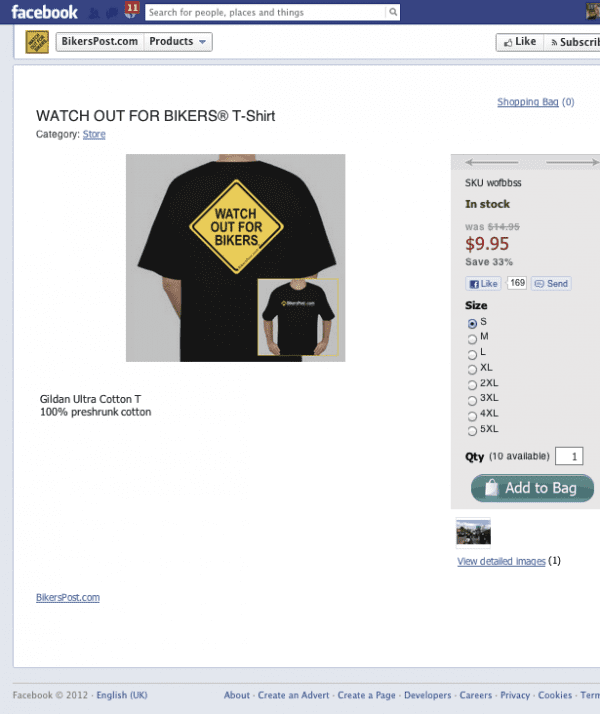New research shows potential for Facebook commerce?
Value/Importance: [rating=3]
Recommended link: Ecwid/TNS Research
You will have noticed that in 2011 there was a lot of hype about Facebook commerce with many companies announcing the launch of F-commerce stores.
By 2012 we had moved from the peak of inflated expectations to the trough of disillusionment in the technology hype cycle.
This disillusionment or “F*****d commerce” as Marketing Pilgrim put it, was shown with major US retailers like Gamestop, JC Penney, Nordstrom and The Gap all shutting their Facebook stores.
Does this mean the end for F-commerce? Not necessarily. This new research suggests that F-commerce maybe moving along the slope of enlightenment. The research from TNS, predicts that:
"6.1% of online purchases over the next 3 years will be made via Facebook. Although only 4% of GB consumers have purchased goods from Facebook, the research showed that 40% would be happy to buy goods from Facebook if it delivered a similar shopping experience to an online store.
There is also evidence of increases in sales from retailers who implement F-commerce. E-commerce widget provider Ecwid showed that its users see an increase of 15% in revenue when implementing its Facebook application. The company analysed 2,000 user accounts and found that in the month following the implementation of an Ecwid Facebook store, an additional 15% of sales was generated from the application.
This is an example of a typical small business F-commerce store from Ecwid:

Another provider Payvment surveyed its 165,000 sellers and found that many are still actively promoting their stores.
This study by Payvment also suggests the value of sellers using Facebook ads. When they launched a recent service linking ads to their stores, they found that their advertisers:
- increased their likelihood of making a sale increased by 52%
- increased their average order size increased by 74%
- gained a 164% increase in overall dollars spent in the F-commerce store
So perhaps F-commerce isn’t so much about the big brands, but providing an opportunity for smaller retailers:









